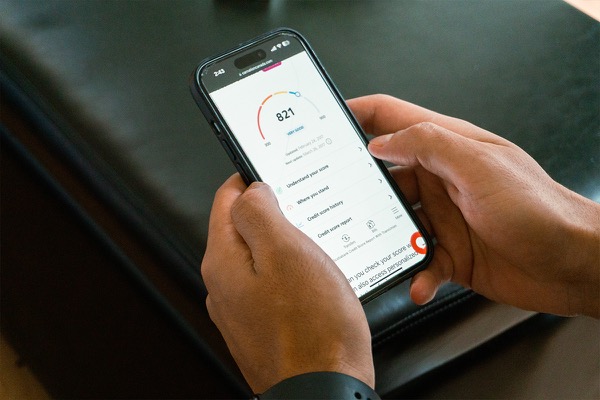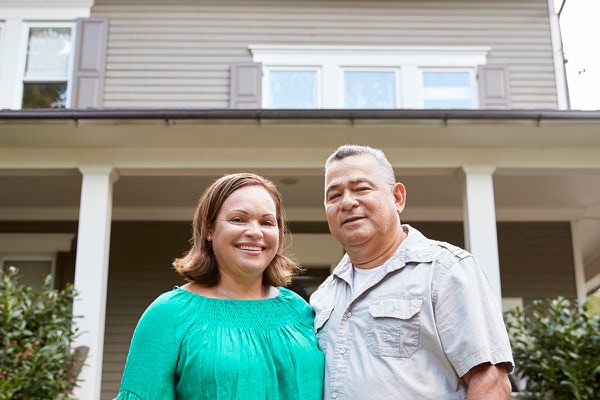Looking to build your credit? In this post, we review some of the common factors that influence your credit score!

Understanding the meaning of being “house poor”
If you’ve heard the term “house poor” before, you likely know it is something you want to avoid as a home owner. Most people assume it has a negative meaning, and rightly so. However, what exactly does being house poor look like? Here are the key points you should know about being house poor if you’re considering entering the market!
What does house poor mean?
In simple words, house poor is a term used to describe a person who is spending too much money on their home. This is someone who likely bought a house they could not truly afford, and as a result are struggling to maintain their financial obligations to it. The general guideline is if a person is spending over 40 per cent of their income on their home, they are house poor. This just includes maintaining ownership of the house, like making mortgage and tax payments. It doesn’t account for any home upgrades. If paying the minimum amounts to afford a home is costing over 40 per cent of a person’s income, they fall into this category.
How does someone become house poor?
As we mentioned, people usually become house poor by overestimating how much they can afford when they buy their home. Inaccurate budgeting is a big contributing factor here. A home buyer may think they can comfortably afford a certain amount based on their income, but they don’t properly account for expenses, debts, or interest rates, for example. Maybe they expected to be making more money than they are, or anticipated lower living expenses than they are encountering. It’s easy to underestimate the costs of homeownership, especially if you have not owned a home before. It can be a complex task to budget for this purchase, and doing so too quickly, or without the help of a professional, can have tough consequences.
What are the risks?
Some people think about being house poor and consider it a temporary inconvenience that they will have to pull through. This is true in some cases, but in others it can cause a lot of financial struggles. If all of your money needs to go towards your home, this will limit your ability to pay for other necessary items. Food, internet, electricity, and car payments are all essential, for example. If your home is drying up your savings account, these expenses will be put at risk. Plus, non essential expenses like entertainment will have to be tossed out the window as well. Everyone deserves to enjoy some “extra” expenses such as Netflix or a restaurant dinner, but these little luxuries are not in the budget for a person who is house poor.
The other big danger of being house poor is the possibility of not even being able to make those mandatory home payments. Eventually, home owners might struggle to pay their mortgage, which poses a big threat. It’s even possible for home owners to lose their property if they can’t find a way to support their financial obligations. In short, being house poor shouldn’t be treated as a minor nuisance that everyone goes through. It is not an inevitable part of homeownership, and therefore it’s important to avoid it.
How can you avoid it?
If you’re buying a house, how can you make sure you won’t end up being house poor as a result? While this is a big purchase that will put you into debt, it doesn’t have to become a threat to your financial wellbeing. The most important first step is being certain you are ready for the responsibility of owning a home. You should only be buying a home if you are committed to the experience. This means you have been saving up for a down payment, have an idea of your buying goals, and know where you want to settle down. You also need to create a proper budget that reflects your situation. Being honest about your income, expenses, and debts is essential in order to have an accurate idea of what you can afford. Finally, use professional help! Real estate agents and mortgage brokers are both invaluable resources. Realtors can help you understand the current costs of homes and living expenses, and they can find properties that will suit your needs. Brokers, meanwhile, are here to help you budget and secure the right mortgage product. We work with a large variety of lenders, and we can help you understand where you fit into the market.
Being house poor is a scary thought, but with proper planning and budgeting, it is avoidable. Get in touch with professionals early in the process to ensure you can afford a home and a mortgage that supports your needs. As brokers, we are dedicated to educating our clients on all of their housing questions. It’s never too early to get started!
If you have any questions about your mortgage, get in touch with us at Clinton Wilkins Mortgage Team! You can call us at (902) 482-2770 or contact us here.


